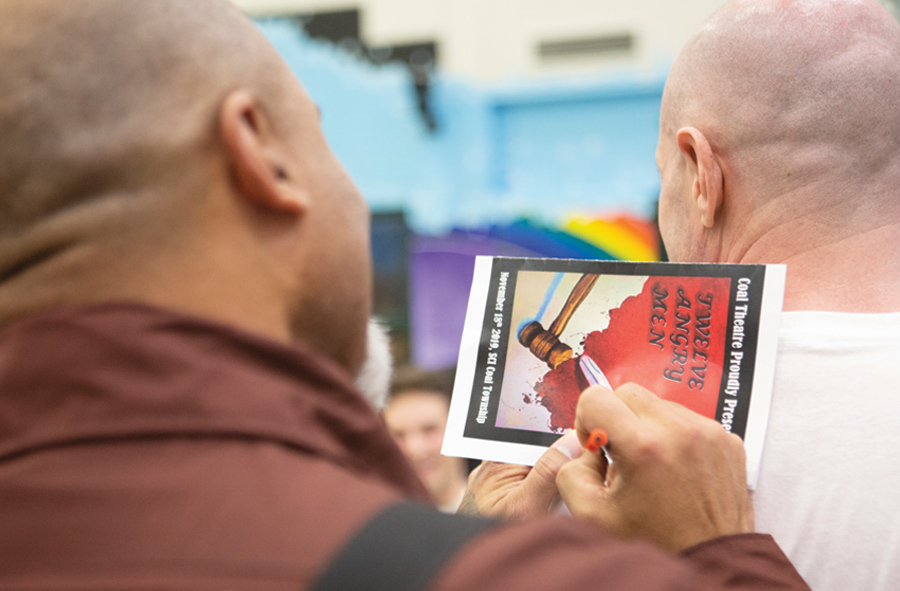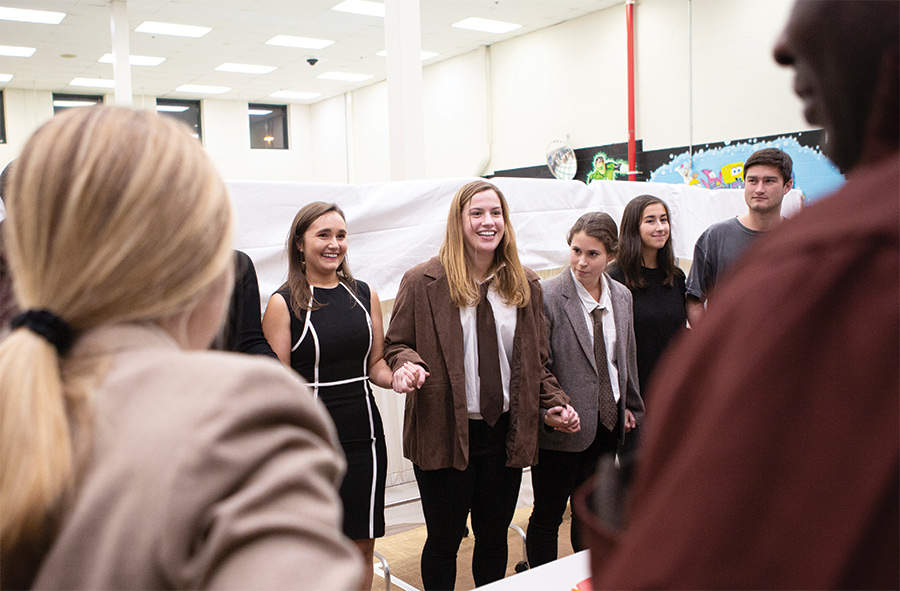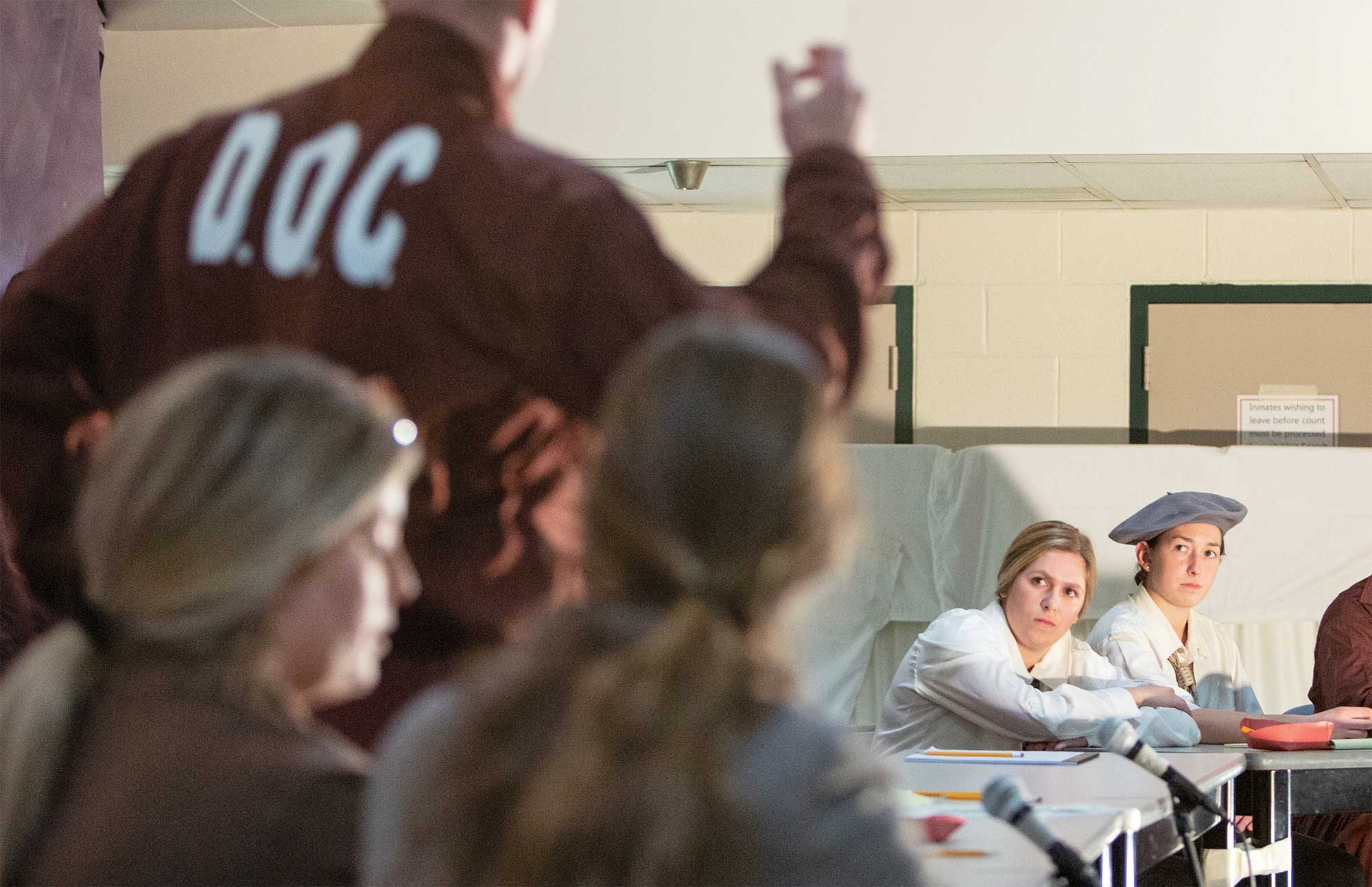ime passes slowly, and your daily routine has few variations when you’re in prison for life. And so the days stretch on for Joel, who’s spent the last 17 years in state prison on a murder conviction, and his fellow inmate, Tito. Now 43, Tito has been incarcerated since he was convicted of murder at 19. Both men may spend the rest of their lives behind bars (although they have applied for commutation of their sentences), and when you’ve been incarcerated for so long, any opportunity for a change in routine is welcome.
But it’s also scary.



Below: Mackenzie Gross ’21 (in black dress) celebrates their prison debut with cast and crew.
Their opportunity came through a Bucknell-led class affiliated with the Inside-Out Prison Exchange program, which brings college students into prisons for joint classes with inmates.
Professor Carl Milofsky, sociology, who taught his first Inside-Out class at the State Correctional Institute (SCI) at Coal Township in fall 2018, had also been won over by Gross’ pitch when she ran it past him last spring. The comparative humanities and theatre major even sold him on the idea of letting her lead the fall 2019 class.
Under Gross’ direction, the class became an ensemble studying and dissecting Twelve Angry Men, Reginald Rose’s play about a jury deliberating the fate of a teenager charged with killing his father. Gross kept the classroom focus on incarceration and “how race, power and privilege play roles in that conversation.” While the film version of the play featured an all-white male cast, Gross’ cast featured men and women of mixed race and age.
The actors staged two performances — one for fellow inmates and outside visitors, the other for family, prison staff and the Bucknell community.


“I’ll support anything to have the inside and outside students grow together,” McGinley says. “They all grow intellectually, socially and emotionally.”
Gross, who plans a career as a reform-minded criminal prosecutor, hopes it’s not the last theatre production at SCI Coal Township. “My dream is to serve as a mentor to a young director interested in this form of activism — to continue the legacy and the momentum,” she says.
Tito and Joel, the once-reluctant actors, also hope Coal Theatre continues. “This experience changed my life in a profound way,” says Joel. “I never wanted to be in the limelight, but part of me changed when I stepped out of my comfort zone. That’s when you grow the most, and the students taught me that.”
Tito was also moved: “Besides the birth of my daughter, what happened on that stage Nov. 18 is the most profound thing in my life.”’